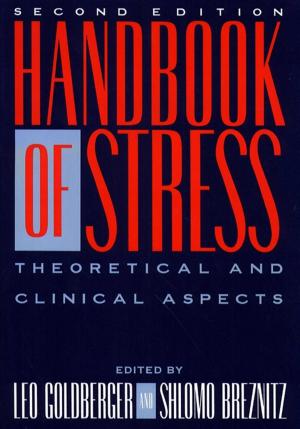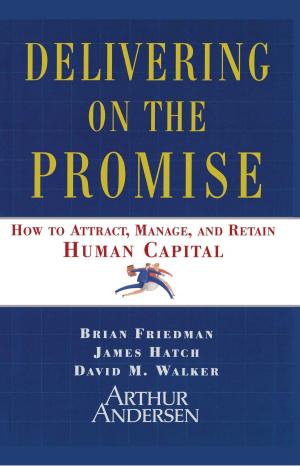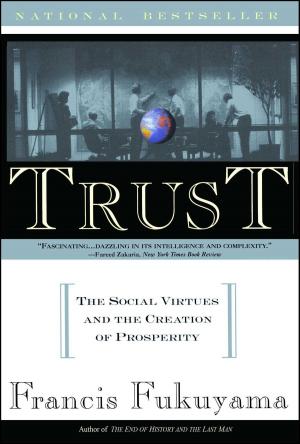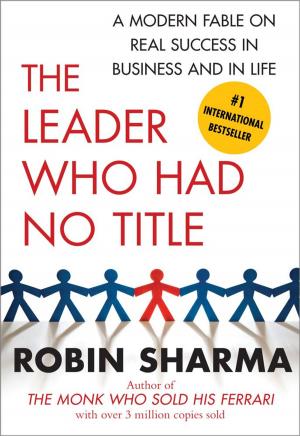The Pretender
How Martin Frankel Fooled the Financial World and Led the Feds on One of the Most Publicized Manhunts in History
Nonfiction, Social & Cultural Studies, True Crime, Business & Finance| Author: | Ellen Pollock | ISBN: | 9780743222037 |
| Publisher: | Free Press | Publication: | May 18, 2002 |
| Imprint: | Free Press | Language: | English |
| Author: | Ellen Pollock |
| ISBN: | 9780743222037 |
| Publisher: | Free Press |
| Publication: | May 18, 2002 |
| Imprint: | Free Press |
| Language: | English |
How could a two-bit investor, too paralyzed with fear to trade stocks, bilk insurance companies out of $200 million?
How could a gawky misfit with an obsessive terror of germs induce a harem of attractive young women to feud over him?
How could a recluse from Toledo, Ohio, penetrate the circles of political and financial power in Washington, D.C., and New York City without leaving his house?
How could a Jewish guy with a passion for S&M sex persuade the Vatican to go into business with him?
And how could he do all this without anybody noticing?
Now the whole amazing story of how Martin Frankel pulled off one of the greatest financial scams of the century is revealed by The Wall Street Journal's Ellen Joan Pollock, who was a lead writer on the reporting team that broke story after story as Frankel eluded the FBI's four-month international manhunt.
The Pretender chronicles how a bumbling thirty year old used his financial skills to build an intricate Ponzi scheme based on lies and his amazing gift for luring businessmen -- including Democratic powerbroker Robert Strauss -- into his web. Frankel's stolen millions allowed him to transform himself easily from mama's boy to corporate mogul. His creation of a phony Catholic charity drew the interest of priests with close Vatican ties as well as a new group of mysterious business partners. But his attempts to go "global" proved more challenging and aroused the suspicions of state regulators. Frantic that his empire was about to unravel, Frankel vanished from his multimillion-dollar Greenwich, Connecticut, mansion, leaving behind a mysterious fire, a dozen or so heartbroken women, and some very confused law-enforcement officials. His bizarre scamper through Europe as a fugitive would ultimately climax in a German hotel room.
Frankel's world was peopled with desperate businessmen, well-heeled con artists, women looking for love, vindictive husbands, diamond merchants, private eyes -- the whole colorful cast of characters that propelled this fast-moving drama.
The Pretender is filled with countless revelations from business associates and former lovers -- many of whom were interviewed for the first time for this book. What finally makes The Pretender so compelling is that it is a snapshot of a peculiar moment in business history. Just as figures like Ivan Boesky and Michael Milken epitomized the deal-crazed eighties, Martin Frankel is the quintessential criminal of the millionaire-a-minute nineties.
How could a two-bit investor, too paralyzed with fear to trade stocks, bilk insurance companies out of $200 million?
How could a gawky misfit with an obsessive terror of germs induce a harem of attractive young women to feud over him?
How could a recluse from Toledo, Ohio, penetrate the circles of political and financial power in Washington, D.C., and New York City without leaving his house?
How could a Jewish guy with a passion for S&M sex persuade the Vatican to go into business with him?
And how could he do all this without anybody noticing?
Now the whole amazing story of how Martin Frankel pulled off one of the greatest financial scams of the century is revealed by The Wall Street Journal's Ellen Joan Pollock, who was a lead writer on the reporting team that broke story after story as Frankel eluded the FBI's four-month international manhunt.
The Pretender chronicles how a bumbling thirty year old used his financial skills to build an intricate Ponzi scheme based on lies and his amazing gift for luring businessmen -- including Democratic powerbroker Robert Strauss -- into his web. Frankel's stolen millions allowed him to transform himself easily from mama's boy to corporate mogul. His creation of a phony Catholic charity drew the interest of priests with close Vatican ties as well as a new group of mysterious business partners. But his attempts to go "global" proved more challenging and aroused the suspicions of state regulators. Frantic that his empire was about to unravel, Frankel vanished from his multimillion-dollar Greenwich, Connecticut, mansion, leaving behind a mysterious fire, a dozen or so heartbroken women, and some very confused law-enforcement officials. His bizarre scamper through Europe as a fugitive would ultimately climax in a German hotel room.
Frankel's world was peopled with desperate businessmen, well-heeled con artists, women looking for love, vindictive husbands, diamond merchants, private eyes -- the whole colorful cast of characters that propelled this fast-moving drama.
The Pretender is filled with countless revelations from business associates and former lovers -- many of whom were interviewed for the first time for this book. What finally makes The Pretender so compelling is that it is a snapshot of a peculiar moment in business history. Just as figures like Ivan Boesky and Michael Milken epitomized the deal-crazed eighties, Martin Frankel is the quintessential criminal of the millionaire-a-minute nineties.















